
views
X
Research source
Whether you had unprotected sex or the condom broke, you may still be able to avoid pregnancy.
Taking Action
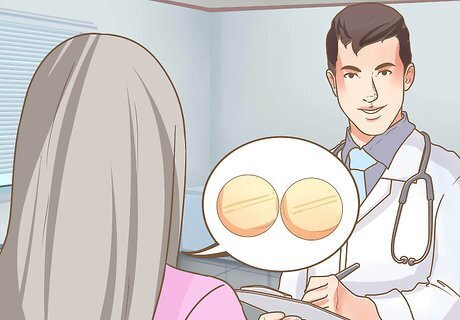
See a pharmacist or medical provider as soon as you can. Time is of the essence in preventing an accidental pregnancy after unprotected sex. Effectiveness is highest in the first 24 hours after sex but emergency contraception can be effective up to 5 days after.
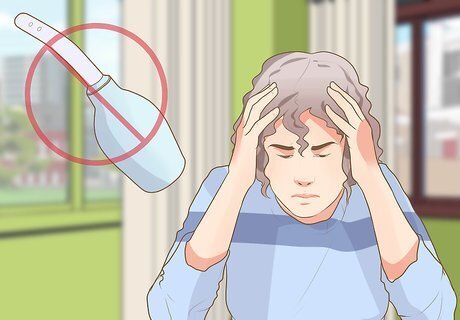
Do not douche. Douching is not only ineffective at preventing pregnancy but is generally advised against by doctors. Douching changes the normal bacterial and yeast state of your reproductive tract leading to increased infections.
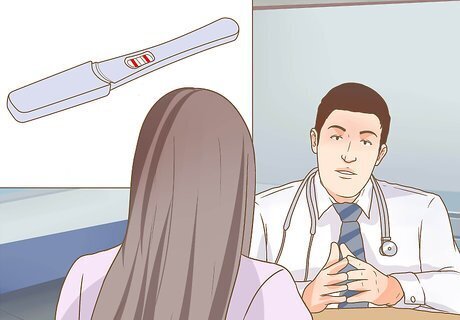
Get tested. If you had unprotected sex, you are not just at risk of pregnancy but you are also at risk for a sexually transmitted infection. See a doctor and get tested for pregnancy and for sexually transmitted infections. HIV testing usually requires two tests six months apart to ensure a true reading.
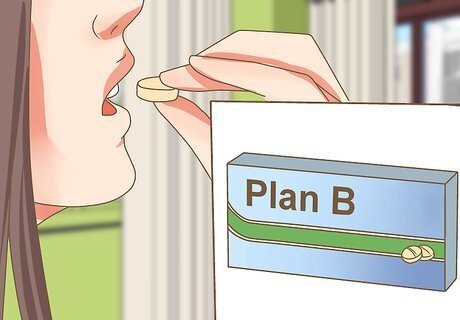
Get Plan B. Plan B is a hormone based emergency contraceptive available in Canada and the United States that prevents ovulation and fertilization if taken within 72 hours of unprotected sex. The hormone in Plan B is called progestin, or levonorgestrel. Plan B is available over the counter at most pharmacies or from your medical provider. You do not need a prescription for Plan B, and it is not covered under most medical insurance plans.
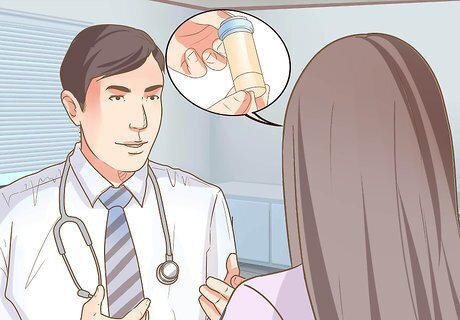
Ask your doctor for Ella. Ella is a synthetic pill (made of ulipristal acetate) that works much the same as Plan B but can be effective up to 5 days after sex. Because of this, it is a bit more likely to be effective at preventing pregnancy than Plan B. Ella requires a prescription from a medical provider. Ella reduces the risk of pregnancy after unprotected sex by approximately 75%. There is no current evidence that Ella causes abortions. The "abortion pill" (RU-486, or mifepristone) is only available with a prescription. While both drugs do interact with progesterone, they do so very differently. The dosage in Ella is not high enough to cause an abortion.

Ask for the pill by name. Do not assume the pharmacist or medical provider will know what you are asking for. Pills currently available in the US are Plan B (also called My Way, Next Choice, or Take Action), and Ella. In Canada, you can ask for Plan B (also called Option 2, Next Choice, or NorLevo). Ella is not yet available in Canada. If the professional helping you only hears you say “contraceptive,” she might think you are asking for regular oral contraceptives. Be specific to ensure you get what you need.
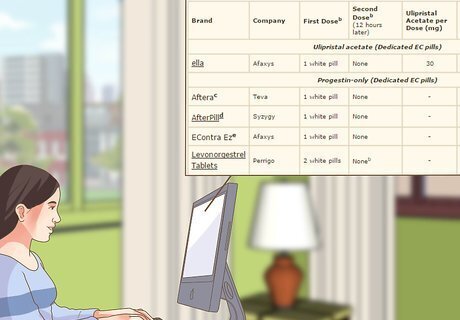
Choose normal birth control pills instead. Certain combination birth control pills work at preventing pregnancy after unprotected sex. You can find a full list at Princeton's Emergency Contraception website. Be sure you are choosing a regular oral contraceptive that has been shown to be effective in preventing pregnancy. Talk with your doctor or pharmacist if you aren't sure. If taken in the proper doses, oral contraceptives reduce the risk of pregnancy after unprotected sex by 75%. This depends on the type of oral contraceptive you have, however.
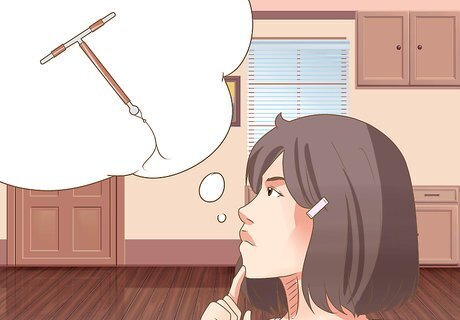
Consider a copper IUD (ParaGard). The copper intrauterine device (aka IUD) is a highly effective form of emergency contraceptive as it reduces the risk of pregnancy by more than 99% if inserted within 5 days of unprotected sex. However, many offices do not carry IUDs in stock and must order them, meaning it may be difficult to use them as emergency contraception within the appropriate timeframe. The copper IUD works by increasing cervical mucus and repelling sperm. Side effects may include cramping and bleeding between periods. Hormone based IUDs (such as Mirena) do not work as emergency contraceptives but they are an excellent choice of preventative birth control. The IUD can easily be inserted by a professional at a doctor's office or clinic. You do not need to go to a hospital. Having a copper IUD inserted provides the extra benefit of being effective as a regular birth control method if left in place for up to 10 years. However, they may be expensive, so they may not be your first choice.
Taking Emergency Contraceptives
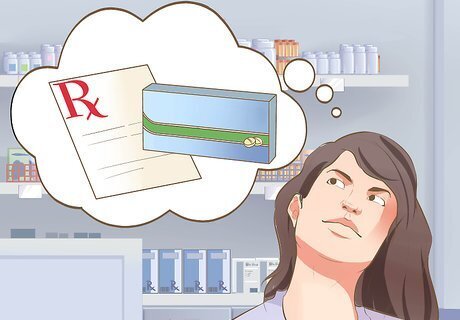
Follow the instructions carefully. Whether you take Plan B, Ella, or a dose of regular oral contraceptives, there are certain suggestions to follow for optimal effectiveness in preventing pregnancy.
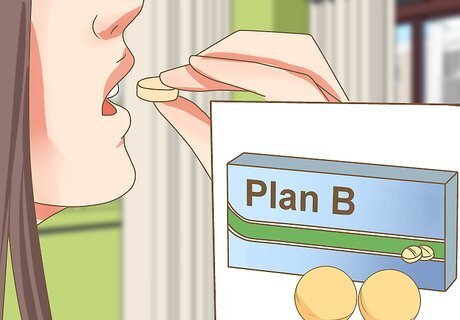
Take Plan B according to directions. Plan B is two pills (which equals one dose) that you take together as soon as you can. You only need to take one dose. Do not take more than the suggested dose or any other birth control pills in addition. The sooner you take Plan B after unprotected sex, the more effective it will be in preventing pregnancy. Plan B reduces the risk of pregnancy after unprotected sex by 95% if taken within the first 24 hours.
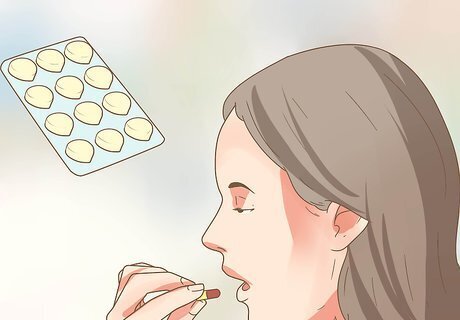
Take Ella as prescribed. Ella is only available by prescription but it is similar to Plan B in how you take it. You only need one dose, which for Ella is just one pill. You only need to take one pill. Do not take more than the suggested dose or any other birth control pills in addition.
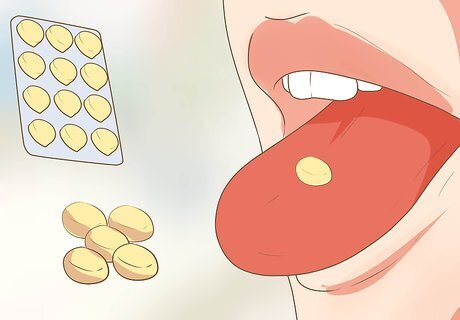
Take combination oral contraceptives as recommended. Doses differ depending on the type of pill you are taking. For example, if you have Levora oral contraceptives, you will take 4 pills at each dose but if you have Aviane, you will take 5 pills at each dose. Be sure to check with a medical professional or pharmacist if you are uncertain how much to take. Take your first dose within 5 days of unprotected sex, then a second dose 12 hours after the first dose. To use regular oral contraceptives as emergency contraception, you usually have to take two doses. Do not miss the second dose or you greatly decrease the chance of successfully preventing a pregnancy.
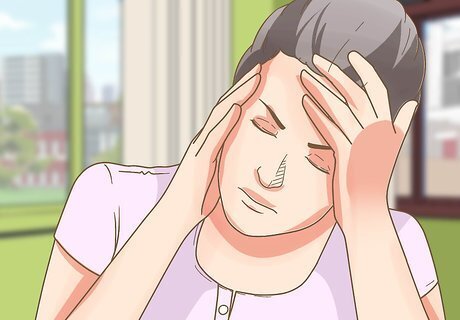
Expect side effects. Regardless of which pill method you choose, you can expect certain side effects to occur so be prepared. Emergency contraceptive pills can cause side effects such as nausea, headaches, and dizziness. Be sure to ask your pharmacist or doctor what to expect.
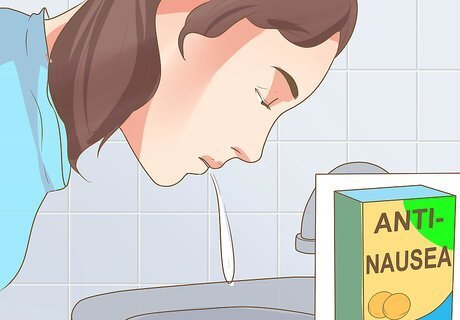
Take an anti-nauseant. Taking an anti-nauseant pill, if one is available, will decrease the chances that you will vomit as a side effect of taking the emergency contraceptives. Taking an anti-nauseant one to two hours before taking your emergency contraceptive may prevent you from throwing up the emergency contraceptive. If you throw up within an hour of taking the emergency contraceptive, call your medical provider to see if you should take another dose.
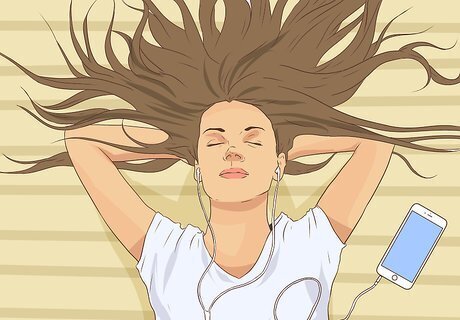
Stay safe and take it easy. Do not drink or drive vehicles in the first 24 hours after taking your pills. You may be additionally drowsy, especially if you have also taken an anti-nauseant.



















Comments
0 comment